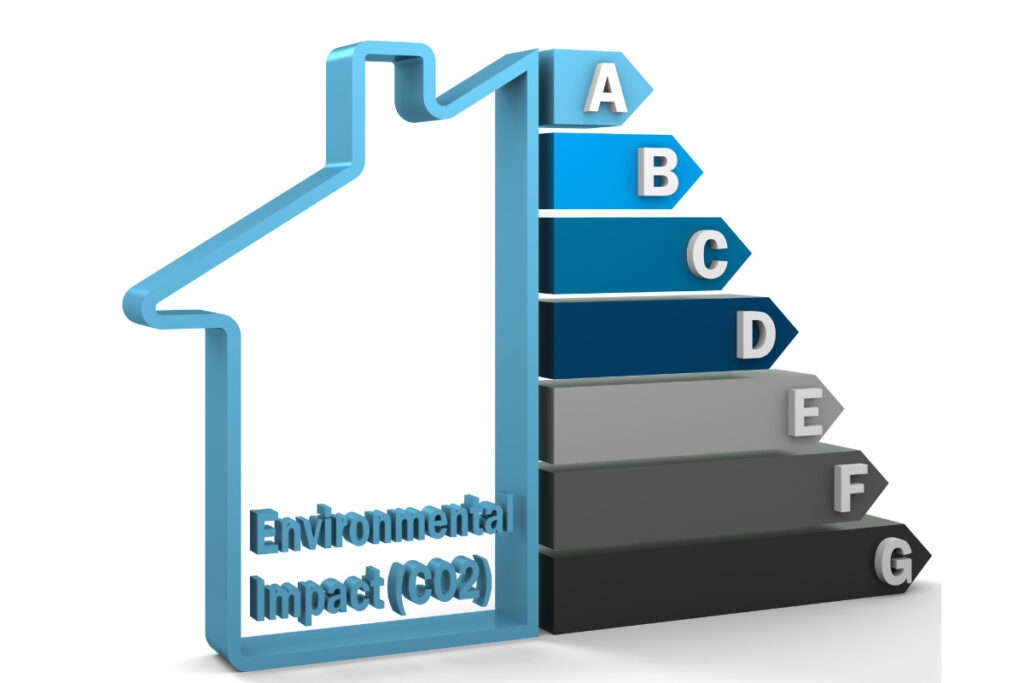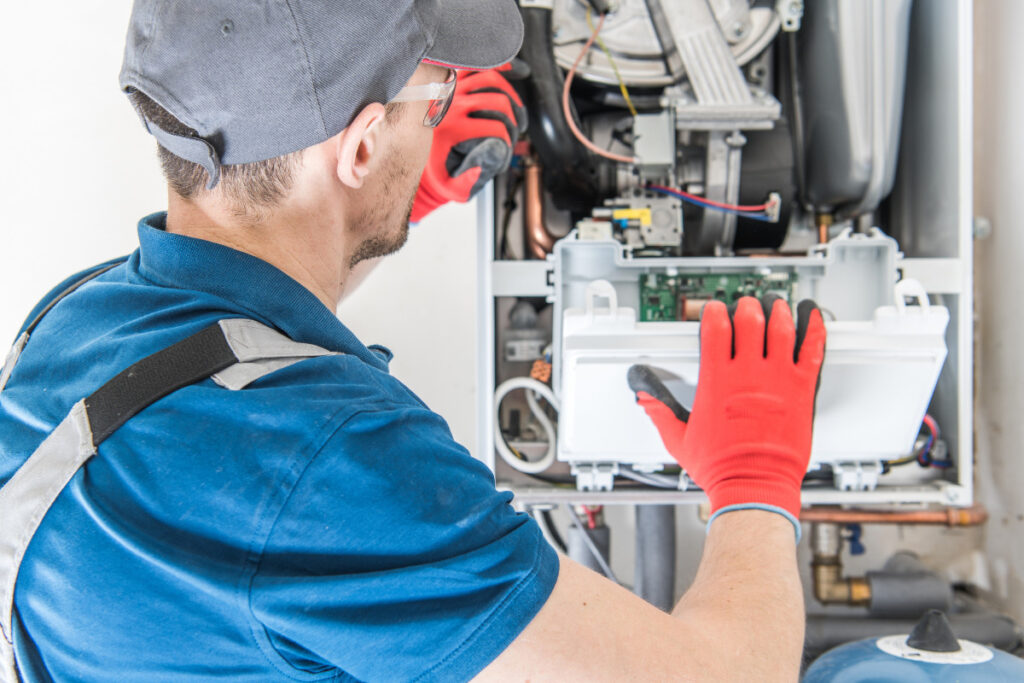Introduction
The debate between heat pumps and furnaces is a hot topic regarding keeping your home warm and cozy. Both systems have unique benefits, but which one is right for you? In this blog post, we’ll dive into heating systems, comparing energy efficiency, cost, environmental impact, and more while exploring how each option fits your needs. So grab a cup of tea or coffee and join us as we unravel the mystery behind these two popular home HVAC solutions to help you make an informed decision.
Understanding Heat Pumps And Furnaces
Heat pumps and furnaces are two home heating systems that work differently. Heat pumps use electricity to move heat from the outside air or ground into the home, while furnaces burn fuel (typically natural gas) to create hot air that circulates through ductwork. Homeowners should consider both heating systems’ benefits and limitations before choosing one.
How They Work
Heat pumps and furnaces work through distinct methods to provide warmth in your home. Heat pumps’ primary function is transferring heat from one location to another, like outdoor air or underground sources (geothermal heating), into your living spaces. It can also reverse this process during warmer months by extracting indoor heat and transferring it outside, providing heating and cooling functions. In contrast, furnaces generate their own heat source by burning natural gas, propane, or oil.
While both systems utilize different mechanisms for producing warmth in your home, they also rely on a distribution system to circulate heated air throughout the living spaces. Heat pumps often use ductwork similar to an air conditioning system; however, modern alternatives like ductless mini-splits deliver conditioned air directly into rooms without duct installation. On the other hand, furnaces typically employ forced-air setups with blowers pushing warm air through a network of ducts that carry it into each room via vents or registers.
When comparing these two heating options side-by-side – heat pump efficiency shines due to its ability to transfer energy instead of creating it anew through combustion processes found in traditional furnaces. However, those residing in colder climates may still benefit more from furnace installations since they can generate higher consistent thermal outputs even during freezing weather conditions – something that can be challenging for some types of heat pumps, depending on the design and environmental factors at play.
Benefits And Limitations Of Heat Pumps
Heat pumps are becoming increasingly popular as an alternative to traditional furnaces for home heating and cooling. Here are some of the benefits and limitations of heat pumps:
- Energy efficiency
- Heat pumps are highly energy-efficient and can save homeowners money on their electric bills. Heat is transferred from the air or ground outside to the house, rather than from a fuel source.
- Cooling capabilities
- Heat pumps can be used for cooling during warmer months, making them a versatile option for year-round comfort.
- Environmental impact
- Heat pumps have a smaller carbon footprint than furnaces since they don’t use fossil fuels to create heat. They also use refrigerant instead of combustion to transfer heat, which is less environmentally harmful.
- Installation cost
- The cost of installing a heat pump can be higher than that of a furnace, especially in colder climates.
- Heating capacity
- Heat pumps are less effective in keeping homes warm in cold temperatures due to their reduced heating capacity.
- Maintenance
- Poorly maintained heat pumps can lead to higher energy bills and decreased efficiency in heating and cooling homes.
Heat pumps offer advantages over furnaces, but may not be suitable for all situations depending on climate and personal preference. Knowing the pros and cons of each system will help homeowners make informed decisions when choosing their home HVAC system.
Benefits And Limitations Of Furnaces
Furnaces are traditional heating systems used for decades, providing efficient and effective heat in cold climates. Here are some benefits and limitations of furnaces:
- Furnaces use combustion to produce heat, which can be more reliable than the outdoor coils used in heat pumps.
- They can heat a home quickly, making them ideal for colder climates with consistently low temperatures.
- Furnaces can use natural gas or propane as a fuel source, often less expensive than electricity.
- Installation costs for furnaces are generally lower than for heat pumps, especially if ductwork is already in place.
However, furnaces have some limitations. They don’t offer cooling capabilities like heat pumps, so separate air conditioning units may be necessary. If not properly maintained or serviced regularly, gas furnaces can also produce carbon monoxide. Additionally, they’re not as energy-efficient as newer heat pump models and require more energy.
Efficiency, Cost, And Environmental Impact
Efficiency-wise, heat pumps are more energy-efficient than furnaces as they require less energy to operate, resulting in lower electric bills; however, heat pump installation costs can be higher than furnaces. Additionally, while both systems have environmental impacts, heat pumps utilize renewable energy while furnaces use fossil fuels, which affect your home’s carbon footprint.
Energy Efficiency Comparison
Energy efficiency is a crucial factor when deciding between heat pumps and furnaces. Below are comparisons of their energy efficiency to help you make an informed decision.
- Heat Pumps
- Heat pumps are known for their energy efficiency, requiring less energy. They can deliver up to three times more heat than the electrical energy they consume. This is because heat pumps transfer heat rather than generate it.
- Furnaces
- The efficiency of furnaces is measured by Annual Fuel Utilization Efficiency (AFUE). Gas furnaces have an AFUE that typically ranges from 78% to 96%. This means a 96% AFUE furnace converts 96% of its fuel into heat, with only 4% loss as exhaust. Electric furnaces are less energy-efficient compared to heat pumps.
Cost Comparison: Installation And Maintenance
When comparing the cost of heat pumps and furnaces, it’s essential to consider installation and maintenance expenses to make an informed decision. The following table provides a comparison of these costs.
- Heat Pumps
- Higher installation cost, ranging from $2,500 to $7,500
- Regular maintenance required, annual cost range of $150 to $300
- More energy-efficient, lower energy bills in milder climates
- Furnaces
- Gas furnaces are less expensive to install than electric furnaces, ranging from $1,500 to $6,000 respectively.
- Regular maintenance required, maintenance cost range of $100 to $200 per year
- Energy costs can vary based on fuel type and may be higher in colder climates
It’s crucial to weigh these cost factors and other considerations, such as climate, energy efficiency, and personal preferences when deciding between a heat pump and a furnace for your home heating needs.
Environmental Impact Comparison
When it comes to environmental impact, heat pumps are the clear winner. Because they transfer heat rather than burning fuel, they produce significantly fewer greenhouse gas emissions. Compared to a standard gas furnace, which emits up to 5.8 tons of CO2 annually, an air-source heat pump produces only about 1 ton of CO2 annually. In addition, some types of heat pumps use renewable energy sources like geothermal or solar power, further reducing their carbon footprint.

Furnaces have a much larger environmental impact due to their reliance on fossil fuels like natural gas and oil. They also contribute to air pollution by releasing nitrogen oxides and other harmful gases during combustion. While newer furnaces are more efficient and produce fewer emissions than older models, they still have a long way to go regarding sustainability.
A heat pump is a way to go if you want a heating system with minimal environmental impact. Not only do they use less energy overall, but they also don’t rely on nonrenewable resources that contribute to climate change. With advances in technology making them more efficient all the time and incentives available for switching from fossil-fueled systems – you can be sure that this option provides both comfort AND conscience!
Choosing The Right System
Evaluate your home size, insulation, and heating needs to determine whether a heat pump or furnace is the best option while also considering your area’s climate and location.
Consider Your Climate And Geographic Location
Your climate and geographic location are important factors to consider when deciding whether a heat pump or furnace is the right heating system for your home. A heat pump may be more energy-efficient and cost-effective for year-round heating and cooling if you live in an area with mild winters, such as the southern United States. However, a furnace may provide better heating performance during extremely cold weather in a colder region with harsher winters, like New England or the Midwest.
For example, if you’re living in Phoenix, where temperatures can soar up to 110°F in summer but fall below freezing point at night during the winter season, a hybrid dual fuel system might be perfect for maintaining indoor comfort throughout the year. It automatically switches between gas furnaces on colder days and electric heat pumps on milder days based on outdoor temperature changes. The best solution depends mainly upon two things: how often will you need to use your heater? What is the average annual temperature where you live?
Evaluate Your Home Size, Insulation, And Heating Needs

When choosing between a heat pump and a furnace, it’s important to consider your home size, insulation, and heating needs. If you have a larger home or poor insulation, a furnace may be the better choice as it can produce more heat than a heat pump. On the other hand, if you have a smaller home or good insulation, a heat pump may be more efficient and cost-effective in terms of energy usage.
When evaluating your heating needs, consider how often you use your HVAC system and at what temperature. If you live in an area with harsh winters where temperatures regularly drop below freezing, furnaces are generally more reliable for providing adequate warmth during these colder months. However, if you live in an area with milder winters but hot summers or frequent temperature fluctuations throughout the year, a heat pump could be worth considering, as it can cool and warm your home efficiently without switching systems. Ultimately, weighing each system’s pros against personal preferences will help determine which is best for your situation.
Weigh The Pros And Cons Of Each System
When deciding between a heat pump and a furnace, weighing each system’s pros and cons is important. One major benefit of heat pumps is their energy efficiency. Heat pumps require less energy to operate compared to furnaces, which can lead to lower electric bills for homeowners. Additionally, heat pumps can be used for heating in the winter and cooling in the summer, providing more versatility than furnaces.

On the other hand, furnaces are typically better suited for cold climates as they produce more heat than heat pumps. Furnaces use combustion to generate heat, while most modern heat pumps use outdoor and indoor coils to transfer heat from one location to another. Thus, when choosing between these two systems, individuals should consider factors such as climate control needs (i.e., heating or cooling), budget constraints, personal preference regarding renewable energy sources, and environmental impact concerns before making a final decision.
Dual fuel systems that combine both systems can provide some advantages over standalone units but add upfront costs during installation. Ultimately which type of HVAC system you choose depends on your unique situation with many different variables at play; careful consideration will help ensure that homeowners select an efficient and effective solution catered specifically to their individual needs without breaking the bank or sacrificing performance – whether that means going with a standard heater/furnace set up or exploring newer technologies like hybrid solutions such as ductless mini-splits or geothermal solutions adapted specifically for home use.
Maintenance And Longevity
Regular maintenance is important for heat pumps and furnaces to ensure they operate efficiently and have a longer lifespan.
Maintenance Requirements For Heat Pumps And Furnaces

Both heat pumps and furnaces require regular maintenance to ensure optimal performance and longevity. Here are the maintenance requirements for each:
For Heat Pumps:
- Change or clean air filters every 1-3 months.
- Clean the outdoor coil at least once a year to remove dirt and debris.
- Schedule bi-annual professional maintenance check-ups, including inspecting refrigerant levels, electrical components, and the indoor coil.
- Keep the area around the outdoor unit clear of debris and vegetation.
For Furnaces:
- Change or clean air filters every 1-3 months.
- Check for leaks using a gas leak detector or soapy water on connections and valves.
- Schedule annual professional maintenance check-ups, including inspecting the heat exchanger, burners, ignition system, and carbon monoxide levels.
- Lubricate moving parts such as blower motors and bearings.
Regular maintenance can help prevent breakdowns, extend the lifespan of your heating system, improve energy efficiency, and maintain indoor air quality. It’s important to consult with a professional HVAC technician if you’re unsure about how to properly maintain your heat pump or furnace.
Potential Lifespan Comparison
Both heat pumps and furnaces have different lifespans influenced by maintenance, usage, and system quality. Typically, a well-maintained furnace can last up to 20 years, while a heat pump can last around 15 years. However, this highly depends on preventive care measures like regular cleaning or replacing filters and yearly inspections.
Heat pumps have an advantage over furnaces because they do not require combustion, which means the unit has less wear and tear overall. They also tend to have fewer mechanical components than furnaces, reducing the likelihood of failures due to worn-out parts. Proper maintenance can extend a heat pump’s lifespan beyond 15 years.
Furnace longevity varies depending on whether it uses oil or gas as a fuel source. Oil furnaces require more frequent maintenance to remove soot buildup from burning oil, resulting in shorter lifespans. Gas units typically require less upkeep but may experience issues with corrosion in areas where moisture is present such as near outdoor vents or humid basements.
Conclusion
Choosing the right heating system for your home is an important decision that requires careful consideration of various factors. Whether you opt for a heat pump or a furnace, both have benefits and limitations. While furnaces are great in very cold climates, heat pumps offer better energy efficiency and can also provide cooling during hot summers.
Evaluating your home size, insulation, climate, heating needs, fuel source availability, and the cost is essential before deciding. Maintenance requirements should also be considered when choosing between these two systems.
Ultimately the choice between heat pumps vs furnaces depends on personal preference and variables such as climate conditions and costs. With technological advances come hybrid systems that combine the benefits of both options to create efficient solutions that meet individual heating needs.
No matter which option you choose, it’s important to prioritize environmental impact by considering renewable energy sources like geothermal power or zoning systems that conserve resources while keeping your indoor space comfortable year-round.
What Can We do
At DroneQuote, we understand that upgrading your home to a heat pump or furnace can be a significant investment, and going solar may seem like an added expense. However, did you know that solar power can actually complement and enhance the efficiency of your heating system?
By harnessing the power of the sun, you can generate clean, renewable energy that can power your home’s heating and cooling systems. This means that your furnace or heat pump can work more efficiently and potentially save you money on your energy bills. Plus, with solar panels installed on your property, you’ll be doing your part to reduce your carbon footprint and help create a more sustainable future.
So if you’re considering going solar but have already invested in a heat pump or furnace, don’t worry! Our team at DroneQuote can help you find the right solar solution for your home that works in harmony with your heating system. Contact us today to learn more about our solar services and how we can help you start saving on your energy bills while reducing your impact on the environment. Sign up here.

FAQs:
- What is the difference between these two heating systems?
A heat pump uses refrigerant to move heat from outside your home to inside, while a furnace generates heat by burning fuel such as gas or oil and then distributing it through ducts.
- Which one is more energy-efficient?
Heat pumps are more energy-efficient than furnaces as they do not generate new thermal energy; they simply move warm air from outdoor spaces into indoor areas. Furnaces produce their own thermal energy, which makes them less efficient.
- Are there any environmental benefits of using a heat pump over a furnace?
Yes, depending on how electricity is generated in your area: using renewable sources like solar power and using an electric-powered heat pump for heating can significantly reduce your carbon footprint compared to heating with fossil fuels via furnaces.
- Is installation cost higher for installing Heat Pumps vs. Furnaces?
Installation costs vary depending on several factors, including the type of system being replaced (if any) and the current state of the home’s ductwork infrastructure. However, generally speaking – Heat pumps tend to have higher upfront installation costs due to complexity & variety associated with unit selection/preparation, whereas furnaces are typically easier and cheaper to install, although this varies by region/market trends as well, so best approach will depend upon individual circumstances/preferences among other considerations
